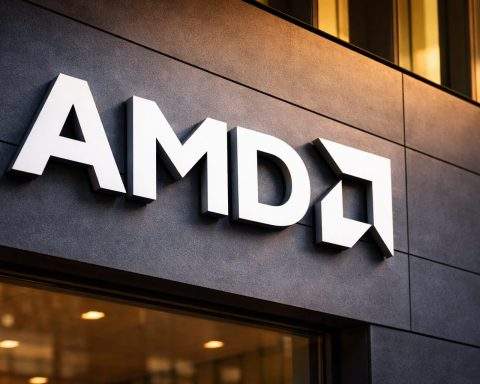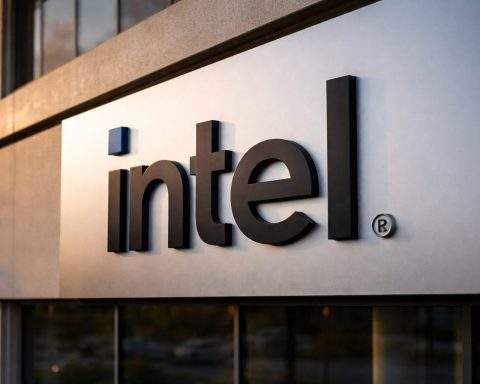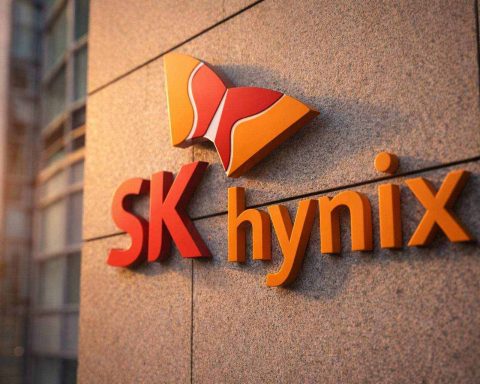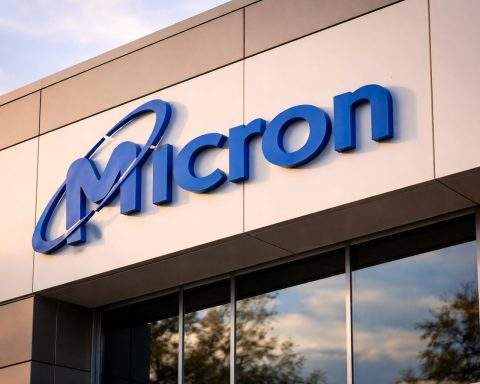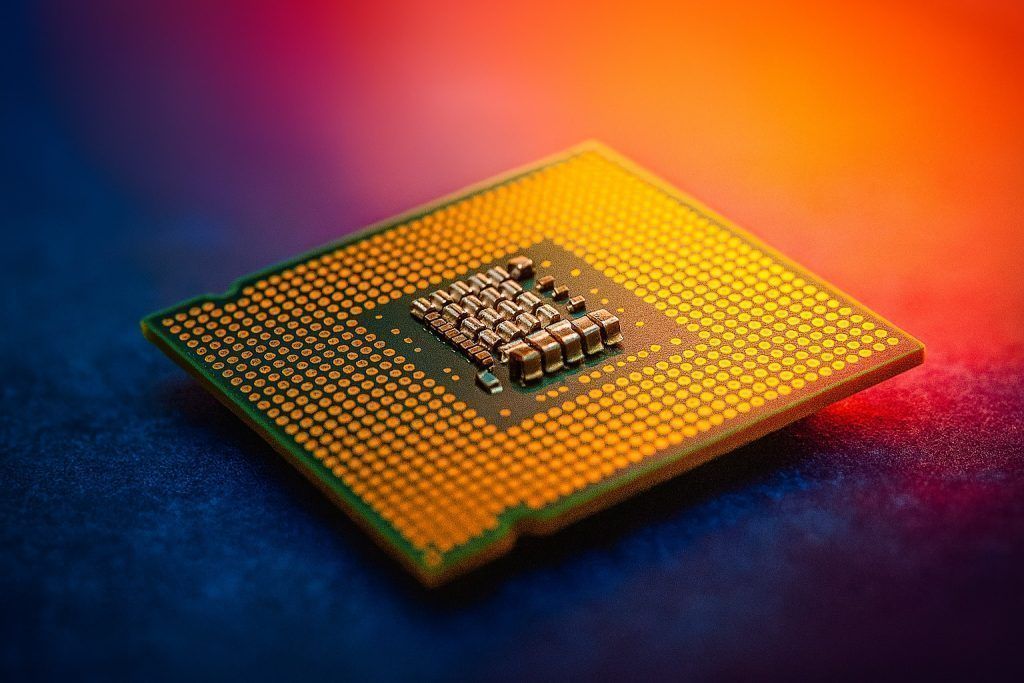- Google will invest over $25 billion in U.S. AI-related data centers and infrastructure over the next two years, plus $3 billion to modernize two Pennsylvania hydropower plants to power AI data centers, under the AI Works for America initiative.
- Project Stargate, originally pitched as a $500 billion effort with $100 billion upfront, is being scaled back to building a small data center by year-end (likely in Ohio) after term disputes between OpenAI, SoftBank, and Oracle.
- Moonvalley raised an $84 million funding round led by General Catalyst, bringing total funding to $154 million to develop licensed-content based, ethical AI video tools and expand its library.
- FuriosaAI signed a partnership with LG to supply accelerators for LG’s EXAONE 4.0 large-language model platform, after turning down an $800 million acquisition offer from Meta.
- Apple stated that advanced Apple Intelligence features, including a smarter Siri, will be delayed until 2026 to prioritize quality over speed.
- AI models from Google DeepMind’s Gemini Deep Think and an OpenAI reasoning model achieved gold medals at the International Mathematical Olympiad, solving 5 of 6 problems and signaling advanced AI reasoning.
- The U.S. plans three AI-focused Executive Orders ahead of the July 23 AI Action Plan, aiming to fast-track AI infrastructure, promote export of U.S.-made AI technologies, and curb biased content in federal AI systems.
- The EU’s voluntary AI Code of Practice is nearing its August 2 endorsement deadline ahead of the AI Act, with Microsoft likely to sign and Meta declining to participate; OpenAI and France’s Mistral AI have already signed the code.
- Britain signed a July 21 OpenAI partnership in London to bolster AI safety research and explore expanding British AI infrastructure, backed by a £1 billion commitment to AI compute resources and an endorsement from Prime Minister Keir Starmer.
- Indonesia unveiled a National AI Roadmap due to be completed in August 2025 to attract foreign investment and build a domestic AI ecosystem, with NVIDIA and Microsoft already investing and a formal strategy release planned, aiming for 2–3% GDP gains from AI by 2027 across ASEAN.
Artificial Intelligence is driving a wave of headline-making developments around the globe. Over the past two days, we’ve seen tech giants announce massive investments, researchers hit historic milestones, startups secure major funding, and governments roll out new AI strategies and regulations. Below is a comprehensive roundup of the notable AI news from July 21 and 22, 2025, organized by category for an informed overview.
Corporate Announcements & Investments
- Google’s $25B AI Infrastructure Bet: Alphabet’s Google revealed plans to pour over $25 billion into AI-related data centers and infrastructure in the U.S. over the next two years cynopsis.com blog.google. The investment will focus on states in the PJM power grid region and is paired with an additional $3 billion to modernize two Pennsylvania hydropower plants to supply energy for AI data centers cynopsis.com blog.google. Google is also launching an “AI Works for America” initiative to train American workers and small businesses in AI skills blog.google blog.google. “Google is investing more than $25 billion across states in this critical [power] region over the next two years,” said Alphabet President Ruth Porat, emphasizing the company’s commitment to expand U.S. AI capacity blog.google blog.google. President Trump and other officials praised the move as aligning with a national push for “energy abundance” to support AI growth blog.google 1 .
- OpenAI & SoftBank’s Stargate Scales Down: The ambitious Project Stargate – a joint AI infrastructure venture by OpenAI, SoftBank, and Oracle – is recalibrating its timeline. Initially touted as a $500 billion effort to supercharge U.S. AI capabilities, Stargate will now “set a more modest goal of building a small data center by the end of the year, likely in Ohio,” according to a Wall Street Journal report reuters.com. Differences emerged between OpenAI and SoftBank over key partnership terms (such as site locations), causing the project to refocus reuters.com. In a joint statement, the companies told Reuters they are moving “with urgency on site assessments” and progressing on multiple sites reuters.com. When unveiled in January, Stargate’s backers pledged $100 billion up front (with the rest over four years), and Oracle’s Larry Ellison even noted the first data center was already under construction in Texas reuters.com. The downscaling comes as the White House underscores the race for AI infrastructure: President Trump has made winning the AI race against China a priority, even declaring a national energy emergency to fast-track data center buildouts and chip production reuters.com 2 .
- Moonvalley’s “Ethical AI” Funding Boost:Moonvalley, an AI research startup specializing in generative video models trained on licensed content, announced an $84 million funding round led by General Catalyst reuters.com. The investment – which includes backers like CoreWeave, Khosla Ventures, Creative Artists Agency (CAA) and Comcast Ventures – will help Moonvalley meet soaring enterprise demand for its “ethical” AI video tools, expand its content library, and add features requested by partners reuters.com reuters.com. Moonvalley only last week launched its first professional AI video model built entirely on licensed media reuters.com, a timely move as Hollywood grapples with generative AI. “Our relationship provides Moonvalley with access to advanced compute resources – including the latest GPU systems,” noted CoreWeave co-founder Brannin McBee, underscoring how critical computing power is for AI startups reuters.com. The new round brings the Toronto-based company’s total funding to $154 million reuters.com, reflecting investor enthusiasm for AI solutions that address copyright and legality concerns in content creation 3 .
- Other Notable Industry Moves: South Korea’s AI chipmaker FuriosaAI struck a major partnership with LG to supply its accelerators for LG’s new EXAONE 4.0 large-language model platform techcrunch.com. This deal – announced July 22 – comes just months after FuriosaAI declined an $800 million acquisition offer from Meta techcrunch.com. CEO June Paik said the startup chose independence to continue its mission of making AI computing more sustainable, and the LG tie-up could open doors to global clients beyond Korea techcrunch.com techcrunch.com. Meta’s interest in buying its own AI chip suppliers (like Furiosa) highlights Big Tech’s drive to reduce reliance on NVIDIA and control its AI hardware stack techcrunch.com. Meanwhile, Apple’s contrasting approach has drawn attention – as of late last week, Apple confirmed that some advanced “Apple Intelligence” AI features (including a smarter Siri) are delayed until 2026 reuters.com reuters.com. While rivals rush AI updates, Apple is “holding back its AI tools until 2026” to ensure quality, a stance that industry watchers say reflects a tension between speed and safety in the AI race 4 .
Research Highlights & AI Milestones
- AI Conquers the Math Olympiad: In an unprecedented feat, AI models from Google and OpenAI achieved gold-medal scores at the International Mathematical Olympiad (IMO) – the world’s premier high-school math competition reuters.com. This marks the first time AI systems have crossed the threshold for a gold medal at the IMO reuters.com. Both companies reported that their AI solved 5 out of 6 Olympiad problems, demonstrating a level of mathematical reasoning on par with the top human contestants reuters.com. Notably, the two teams took different approaches: Google DeepMind entered the competition officially, having its “Gemini Deep Think” general-purpose model graded and certified by IMO judges reuters.com reuters.com. OpenAI did not formally enter but revealed that an experimental version of its own reasoning model also achieved a gold-worthy score on the same problems, verified by external IMO medalists reuters.com. Experts say this breakthrough foreshadows AI’s growing potential in pure reasoning tasks. “The achievement suggests AI is less than a year away from being used by mathematicians to crack unsolved research problems,” observed Junehyuk Jung, a Brown University math professor and former IMO champion who now researches AI at Google DeepMind reuters.com. “I think the moment we can solve hard reasoning problems in natural language will enable collaboration between AI and mathematicians,” Jung told Reuters reuters.com. The key innovation was allowing the models to “think” longer and in parallel: OpenAI’s team massively scaled up test-time compute, running many reasoning threads simultaneously so the AI could explore multiple solution paths – a “very expensive” approach, researcher Noam Brown noted reuters.com. Google’s model, for its part, operated entirely in natural language within the official 4.5-hour contest limit (forgoing older formal proof methods) reuters.com. Both companies view the results as proof that AI’s reasoning prowess is quickly expanding beyond rote tasks, with potential applications in other scientific domains like physics reuters.com. The IMO organizers had anticipated AI participation. For fairness, they coordinated with AI labs to hold off any result announcements until after human competitors were celebrated reuters.com. Google abided by the request – “We respected the IMO Board’s request that all AI labs share their results only after official results… and the students had rightly received the acclamation they deserved,” DeepMind CEO Demis Hassabis posted reuters.com. OpenAI, however, went public slightly earlier on July 19, saying it had permission from one IMO board member to share its achievement after the competition’s closing ceremony reuters.com. By Monday July 21, the IMO board gave the green light for all cooperating companies to publish results reuters.com. The episode underscores both the rapid progress and the delicate coordination now needed as AI begins to rival human experts even in creative problem-solving contests.
- Other Research News: In the wider science community, AI developments continue apace. On the healthcare front, Denmark announced plans to host the world’s most powerful quantum computer – a step tied to advanced AI and quantum research synergy (plans unveiled July 17) reuters.com. And in industry labs, Netflix disclosed it quietly used generative AI to help produce an Argentine sci-fi TV series – an early example of AI in international entertainment production (confirmed July 18) reuters.com. No major new AI model releases were reported on July 21–22, but anticipation is high for upcoming launches: OpenAI hinted it is working on a more powerful ChatGPT agent to handle complex tasks autonomously reuters.com (following an announcement last week), and rumors swirl that other tech giants will reveal their next-gen models at conferences later this summer.
Regulation & Policy Updates
- United States – Executive Orders & “AI Action Plan”: Washington is gearing up for a flurry of AI policy moves this week. President Donald Trump is set to sign three AI-focused Executive Orders in the lead-up to unveiling a sweeping “AI Action Plan” on Wednesday, July 23 nextgov.com. According to insiders, each order targets a priority area: one will fast-track AI-ready infrastructure (easing energy and permitting hurdles for data centers and compute farms) nextgov.com; the second will promote export of U.S.-made AI technologies via agencies like the Export-Import Bank, to bolster American AI abroad nextgov.com; the third aims to stamp out “woke or otherwise biased” content in AI systems, particularly those used by the federal government nextgov.com. (Two industry sources identified tech investor David Sacks and advisor Sriram Krishnan as architects of the anti-“woke AI” directive nextgov.com.) These EOs build on the Trump administration’s “America First” tech posture and will precede a comprehensive AI strategy rollout. The White House AI Action Plan itself – to be introduced by AI Advisor David Sacks at an event in Washington, D.C. nextgov.com – will outline the government’s longer-term vision. Draft details suggest a focus on Defense Department AI integration, a new DHS-led AI Cybersecurity ISAC to monitor threats, revised standards (e.g. NIST will strip “diversity, equity, and inclusion” from its AI risk framework per the admin’s ideology), open-source AI development, streamlined permitting for AI infrastructure, and workforce development from K-12 to postgraduate levels nextgov.com nextgov.com. The plan also emphasizes maintaining a U.S. edge globally, including exporting U.S. AI tech and countering Chinese influence in international AI standards bodies nextgov.com. “The [AI Action Plan] will deliver a strong, specific and actionable federal policy roadmap that goes beyond the details reported here – and we look forward to releasing it soon,” said OSTP spokeswoman Victoria LaCivita nextgov.com. The flurry of U.S. actions underscores an urgent government effort to assert leadership (and values) in AI governance before rivals set the tone.
- European Union – AI Code of Practice Split: In Europe, a showdown is underway over the EU’s new AI Code of Practice – a voluntary compliance playbook meant to help AI firms meet upcoming AI Act regulations. The deadline for major AI providers to endorse the code is fast approaching (the EU’s AI Act rules kick in on August 2), and tech giants are divided in their responses techcrunch.com techcrunch.com. Microsoft signaled it is likely to sign on. “I think it’s likely we will sign… Our goal is to find a way to be supportive,” Microsoft President Brad Smith told Reuters, noting that he appreciated the EU’s direct industry engagement in crafting the guidelines reuters.com reuters.com. In contrast, Meta Platforms has refused to sign the EU code, very publicly rebuffing it. “Europe is heading down the wrong path on AI,” Meta’s global affairs chief Joel Kaplan wrote, calling the code “overreach” that introduces “legal uncertainties for model developers” and “measures which go far beyond the scope of the AI Act.” techcrunch.com techcrunch.com Kaplan warned it would “throttle the development and deployment of frontier AI models in Europe” and stunt EU competitiveness techcrunch.com techcrunch.com. This echoed a LinkedIn blog post Kaplan made on July 18, where he declared “Meta won’t be signing it” due to those concerns reuters.com reuters.com. Under the voluntary code – drawn up by experts and endorsed by the European Commission – signatories must document their AI training data, uphold copyright rules (no pirated data), and allow opt-outs for content creators, among other transparency steps techcrunch.com reuters.com. The goal is to provide legal clarity ahead of the EU AI Act, a landmark law that takes a risk-based approach (banning certain “unacceptable” AI uses like social scoring, while heavily regulating “high-risk” uses such as biometric ID) techcrunch.com. Top AI players (Google, OpenAI, Anthropic, Meta, Mistral AI, etc.) are all in scope of the Act reuters.com. So far OpenAI and France’s Mistral AI have signed the code reuters.com, aligning with EU regulators. Meta’s defiance has drawn criticism in Brussels, but the Commission is standing firm on its timeline – the new rules will take effect without delay techcrunch.com. As enforcement looms, the split between Microsoft’s cooperation and Meta’s pushback highlights the transatlantic tension over AI regulation: U.S. tech firms want to avoid onerous constraints, while European lawmakers insist on guardrails for AI systems affecting their citizens. The coming weeks will test whether a voluntary framework can gain broad industry buy-in or if tougher measures will be needed.
- United Kingdom – OpenAI Partnership: Britain made a splash by signing a strategic partnership with OpenAI (the maker of ChatGPT) to bolster UK’s status as an “AI superpower.” The agreement, announced July 21 in London, will deepen collaboration on AI safety research and explore building out British AI infrastructure like new data centers reuters.com reuters.com. UK officials touted it as a win for economic growth and innovation. “AI will be fundamental in driving the change we need to see across the country – whether that’s in fixing the NHS, breaking down barriers to opportunity or driving economic growth,” said Peter Kyle, Britain’s Secretary of State for Technology reuters.com reuters.com. “This can’t be achieved without companies like OpenAI, who are driving this revolution forward internationally. This partnership will see more of their work taking place in the UK,” he added reuters.com. Under the deal, OpenAI is considering expanding its London office and will work with the UK on applying AI in areas like justice, defense, and education reuters.com. Prime Minister Keir Starmer (who has launched an “AI Opportunities Action Plan” to make the UK a global AI leader) hailed the collaboration. OpenAI CEO Sam Altman likewise praised the UK as “the first to recognise [AI’s] potential” through its national AI strategy reuters.com reuters.com. The partnership comes as Britain has committed £1 billion to boost AI compute resources and is jockeying to keep up with the US, China, and India in the AI race reuters.com reuters.com. It also follows a somewhat fraught past: OpenAI’s close tie-up with Microsoft once drew scrutiny from UK regulators reuters.com. Now, however, the UK government is embracing OpenAI to help drive innovation “safely” – signaling a pro-innovation yet pro-regulation stance. The move underscores how nations are competing to attract top AI firms (and talent) with friendly policies and funding support.
- Asia – Indonesia’s National AI Roadmap:Indonesia, Southeast Asia’s largest economy, is crafting its first national AI strategy to spur foreign investment and innovation. A government official told Reuters on July 22 that the AI roadmap will be completed next month and will “help AI developers navigate [Indonesia’s market], including on infrastructure and… computational clusters.” reuters.com reuters.com The plan will identify opportunities for AI adoption in sectors like health care and agriculture, aiming to build an entire domestic AI ecosystem reuters.com. “This will give an idea to investors about the potential of AI use in Indonesia,” explained Nezar Patria, Deputy Minister for Digital Economy, who is leading the effort. “We’re hoping they are interested in investing their capital in Indonesia.” reuters.com reuters.com The initiative is partly a response to neighboring Malaysia’s recent success in drawing billions in tech investment by positioning itself as a regional AI hub reuters.com. Indonesia doesn’t want to miss out on the AI boom: a Boston Consulting Group report noted ASEAN countries could see 2–3% added to GDP by 2027 from AI, with Indonesia poised for the biggest absolute gains reuters.com. However, challenges abound. Analysts say Indonesia currently lacks critical infrastructure and skilled talent for AI, which could hamper its ambitions reuters.com. “The country is not ready to be an AI developer owing to a lack of infrastructure such as chips, and a lack of AI skills in the workforce,” cautioned Damar Juniarto, who leads an AI safety research center in Jakarta reuters.com. Patria acknowledged risks around misinformation, IP, and data privacy, though details on how the roadmap will tackle these issues remain scant reuters.com. Beyond software, Indonesia is also leveraging its rich mineral resources in tech diplomacy: the government offered the U.S. a chance to jointly invest in Indonesian critical minerals (key for semiconductors and batteries) as part of ongoing tariff negotiations reuters.com. This comes as Washington seeks alternatives to China for rare earths, and Indonesia positions itself as a strategic supplier in the global semiconductor supply chain reuters.com. In sum, Indonesia’s AI roadmap is as much about economic strategy as it is about tech – aiming to attract foreign partnerships (NVIDIA and Microsoft have already made investments there reuters.com) and ensure the nation isn’t left behind in the AI revolution. Look for the formal AI strategy release in August, which will reveal concrete targets and perhaps incentives for AI investors in Indonesia.
- China & Trade – AI Chip Export Twist: While not an official policy shift from Beijing, one significant development on the geopolitical front has been the U.S. easing restrictions on AI chip exports to China as part of broader trade negotiations. U.S. Commerce Secretary Howard Lutnick confirmed that plans to allow NVIDIA to resume selling its advanced H20 AI GPUs to China were folded into rare-earth trade talks with China reuters.com reuters.com. This mid-July decision (after NVIDIA’s CEO met with President Trump) reverses an export ban from April that aimed to keep cutting-edge AI chips out of Chinese hands reuters.com. The move drew bipartisan concern in Washington: lawmakers warned it could boost Chinese AI firms and undercut U.S. national security reuters.com reuters.com. Indeed, news of the impending license approvals set off a scramble among Chinese tech companies to order H20 chips, which – even if slightly nerfed to meet U.S. rules – are vastly better than any domestically made alternatives and come with NVIDIA’s indispensable software tools reuters.com. “If China is able to get a million H20 chips, it could significantly narrow, if not overtake, the U.S. lead in AI,” cautioned Divyansh Kaushik, an AI policy expert at Beacon Global Strategies reuters.com. The situation highlights the complex dance between trade and tech policy: the Trump administration is balancing a desire to hurt China’s AI progress with the need to negotiate on critical minerals and avoid economic fallout from its tariffs. This week, a House panel openly criticized the NVIDIA exception as threatening the U.S. advantage taipeitimes.com. How this plays out could have huge implications for AI hardware supply chains and the U.S.-China tech rivalry. (Notably, AI chips remain a sticking point as the White House also weighs new restrictions on outbound AI investments by U.S. firms in China – an executive order on that is anticipated later this summer.)
Market & Industry Trends
- Tech Stocks at Record Highs: The stock market is riding a wave of AI optimism. On Monday July 21, the S&P 500 and Nasdaq indices hit fresh all-time highs, lifted by Alphabet and other tech giants reuters.com. Google’s parent Alphabet saw its shares rally 2.7% that day reuters.com, helping propel the S&P 500 up 0.14% and Nasdaq up 0.38% to record closing levels reuters.com reuters.com. Alphabet led a broader jump in the “Magnificent Seven” mega-cap tech stocks, as investors anticipated strong earnings and ongoing AI-fueled growth reuters.com. (Analysts noted Big Tech is expected to drive much of the S&P’s ~6–7% earnings growth this quarter reuters.com.) The AI fervor has been a key factor in 2025’s market rally – the S&P 500 is now up ~8% year-to-date, largely thanks to AI-related gains in tech shares reuters.com. Other companies making AI news also saw positive stock moves: NVIDIA, the world’s most valuable chipmaker, climbed ~4% last week amid the news it may resume some China sales reuters.com reuters.com, and Microsoft and Meta stock have been fluctuating as investors assess the regulatory landscape in Europe (with some relief that the EU code is voluntary for now). In short, Wall Street continues to bet that AI will boost Big Tech profits – a sentiment reinforced by each new product, partnership or infrastructure investment announced.
- Venture Capital Floods into AI: Fresh data show that AI startups are attracting record funding in 2025, despite a cooling in other tech sectors. A PitchBook report cited by Reuters finds U.S. startup funding surged 75.6% in the first half of 2025 (to about $163 billion), with AI deals accounting for 64% of total venture capital by value reuters.com. This is an astonishing concentration – nearly two-thirds of all VC money is going into AI-related companies reuters.com. The trend is exemplified by megadeals like the $2 billion early-stage round raised by Thinking Machines Lab, the startup founded by ex-OpenAI exec Mira Murati reuters.com. That July 15 funding valued the pre-revenue company at $12 billion reuters.com, underscoring how eagerly investors are chasing seasoned AI talent. Similarly, Anthropic (founded by another OpenAI alumnus) and others have pulled in billions in recent months reuters.com. Even smaller AI startups are finding it easier to raise money than non-AI peers, as venture firms shift focus. Industry observers describe this as an “AI gold rush,” albeit one with speculative elements. The talent war in AI is real – top researchers and execs leaving Big Tech can almost instantly secure massive backing for new ventures, as seen with Murati’s and others’ startups reuters.com reuters.com. Some warn of froth, but for now, capital continues pouring in, driving rapid growth (and lofty valuations) in the AI startup ecosystem.
- Corporate AI Spending & Job Impacts: Established companies are also significantly ramping up AI spending, sometimes while restructuring their workforce. For example, IBM, Microsoft, and other incumbents have reported multi-hundred-million-dollar investments in AI-driven automation this year, even as they streamline certain roles. Recent news from Microsoft suggested the company saved $500 million by using AI to improve efficiency amid layoffs of 10,000+ employees – highlighting the double-edged nature of AI on employment wi-fiplanet.com. In a bid to mitigate the displacement effects, AI upskilling initiatives are proliferating: Virginia’s governor just partnered with Google on a jobs portal to retrain workers in AI skills aiwire.net, and companies like Accenture and IBM have announced major retraining commitments. The aforementioned Google AI Works for America program will offer free AI courses to small businesses and workers in Pennsylvania, aiming to prepare the workforce for an AI-centric economy blog.google. This reflects a broader market trend of investing not just in AI tech, but in human capital to use that tech – a necessary step as AI becomes ubiquitous across industries from finance to manufacturing.
- Content and Media Industries Bracing for AI: Another trend crystallized by this week’s news is the growing interplay between AI and the media/entertainment sector. With Moonvalley and others developing “ethical” generative video tools, film and gaming studios are keenly watching how AI can cut costs yet avoid legal troubles reuters.com. The fact that major VFX veterans (like Titanic’s Ed Ulbrich) are joining AI startups reuters.com signals an industry in transformation. Yet there’s also pushback: Hollywood writers and actors are currently negotiating limits on AI-generated content amid strike actions, and the lawsuits referenced (e.g. by Getty Images and big studios against AI firms for copyright infringement) are still unresolved reuters.com. Expect new norms and perhaps regulations to emerge at the nexus of AI and creative content – a conversation now accelerated by the kind of funding Moonvalley just received. Meanwhile, advertisers and social media companies are deploying GenAI for personalized content creation, raising questions about transparency. All told, the market trend is clear: AI is permeating every sector, and companies that harness it effectively stand to gain a competitive edge – but those gains come with disruption that industries are still learning to navigate.
Sources: The information in this report is drawn from reputable news outlets, official statements, and expert analyses published on July 21–22, 2025. Key sources include Reuters for global business developments reuters.com reuters.com reuters.com reuters.com, Nextgov/FCW for U.S. policy details nextgov.com nextgov.com, and TechCrunch for industry-specific news techcrunch.com techcrunch.com. Quotes from officials and executives are provided with attribution to illustrate expert commentary (e.g. Peter Kyle on the UK’s AI vision reuters.com, Brad Smith on the EU code reuters.com, and Junehyuk Jung on AI’s math breakthrough reuters.com). This roundup aims to present a clear and factual summary of the rapidly evolving AI landscape as of July 22, 2025. Please refer to the cited sources for more in-depth reading on any of these developments.

